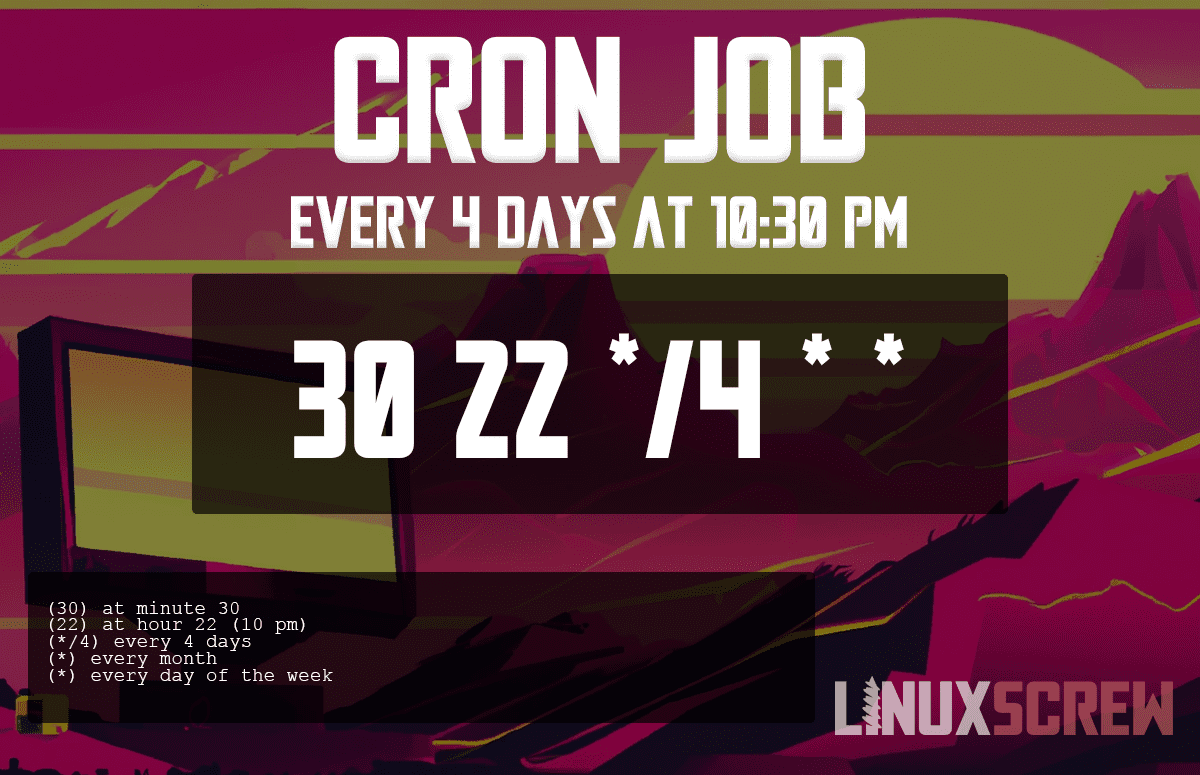This page will help you quickly and easily set up a cron job to run every 4 days at 10:30 pm.
The Cron Job/Crontab
To have your task run at this frequency, use the following cron:
30 22 */4 * *
This cron command translates to the following (in Human-Readable format):
“Every 4 days at 10:30 pm.”
What is a Cron Job & Crontab?
A cron job is a scheduled task that is typically executed by the server in order to automate certain processes or tasks. For example, a cron job could be set up to automatically backup a database every night at 2am.
Crontab files are stored in the “/etc/cron*” directories on most Linux systems. Each user has their own crontab file, and there is also a system-wide crontab file that can be used to schedule system tasks.
Cron Fields
Every cron job uses five fields. Here is an explanation of what each field does in this cron, which runs “every 4 days at 10:30 pm“:
FUN FACT: If you want to see what commands are scheduled in your crontab, type: “crontab -l”.
Use Cases
You might want to set up a crontab or cron job to run every 4 days at 10:30 pm for several reasons, including:
- Scheduling a daily backup that runs every 4 days
- Sending out a reminder email to renew a subscription every 4 days
- Running a script to populate a database with data from an external source every 4 days
Similar Cron Jobs
You might also want to run a crontab:
- every 10 days
- every 3 days
- every 5 days
- every 9 days
- every 7 days
- every 8 days at 10:30 pm
- every 9 days at 11:00 am
- every 6 days at 8:00 am
FUN FACT: The most common way to edit cron jobs is using the crontab command – this stands for “cron table,” and it contains all the information about when your tasks should be executed..
Wrapping Up
In this article, you learned how to set up a cron job that runs every 4 days at 10:30 pm. Please share this page with friends and colleagues if you find it useful.
If you have any questions, please don’t hesitate to comment below.
If you are looking for cron jobs that run at certain minutes, hours, days, weekdays, or months, or if you are looking for miscellaneous cron jobs, then check out our relevant sections, or visit our crontab cheat sheet for a list of hundreds of popular cron jobs.

